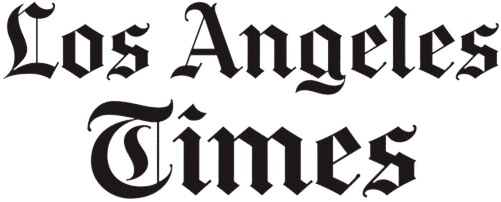Misconduct in higher education institutions can have severe repercussions on the academic and social climate. It comprises a wide variety of violations. In addition to causing disruptions in the educational process, these violations may also have substantial consequences for the individuals implicated, potentially transforming their academic trajectories and future professional opportunities. Title IX is fundamental to addressing and comprehending the intricacy of college misconduct.
Regarding collegiate misconduct, the importance of Title IX cannot be emphasized enough. It protects against sexual harassment, assault, and other forms of sex-based discrimination, thereby ensuring that academic institutions maintain a secure and welcoming environment for all students. This framework establishes a benchmark for preventive measures and educational initiatives designed to diminish occurrences of misconduct on campus, in addition to addressing the immediate issues associated with misconduct.
The objective of this article is to examine the diverse ramifications that Title IX, specifically college misconduct, can have on the future of a student. Students and educators must have a comprehensive comprehension of the wide-ranging effects that can ensue, including academic sanctions, social repercussions, and long-term career and professional consequences.
To comprehend the full variety of actions and behaviors that are considered violations and how colleges and universities respond to them, one must have a thorough awareness of college misconduct in the context of Title IX. To ensure that American colleges and universities abide by federal rules that forbid and address sex-based discrimination, the Title IX process is crucial.

What Title IX Defines as College Misconduct?
Violations of the rules aimed at preventing sex-based assault, harassment, and discrimination in educational settings are referred to as college misconduct under Title IX. Under this federal statute, organizations that receive funding from the federal government are required to prevent sexual assault and other forms of gender discrimination in all of their operations and programs. Ensuring that all parties receive the necessary support and that educational opportunities are not lost due to misconduct, the Title IX process is intended to offer a fair and equitable resolution for complaints.

Types of Behaviors Considered as Misconduct
Under Title IX, a wide range of actions are deemed to be misbehavior, including but not restricted to sexual harassment, discrimination, and assault.
- Sexual Harassment: Unwelcome conduct of a sexual nature that is so severe, pervasive, and objectively offensive that it effectively denies a person equal access to the institution’s education program or activity.
- Sexual Assault: Any sexual act directed against another person without the consent of the victim, including instances where the victim is incapable of giving consent.
- Dating Violence, Domestic Violence, and Stalking: Behaviors that involve manipulation, control, and abuse in relationships, posing a serious threat to the victim’s safety and well-being.
- Discrimination: Denying or restricting a student’s access to programs offered by an institution, such as those in sports, STEM subjects, or other academic areas, or preventing them from participating in them because of their gender.
The Role of College Policies and Federal Regulations in Addressing Misconduct
In accordance with Title IX requirements, colleges, and universities must set up thorough policies and processes to handle and prevent cases of sex-based misbehavior. The rights and obligations of all parties involved must be outlined, as well as of the Title IX procedure for reporting and handling complaints. Prohibited conduct must also be explicitly defined in these regulations. Measures for both immediate and continuing assistance (such as counseling and accommodations), a comprehensive investigation, and a judgment of whether a policy violation occurred are all included in the process. If required, appropriate disciplinary action is taken after the inquiry.
In addition, Title IX coordinators play a critical role in educational institutions. They supervise how policies are put into practice, plan how complaints are handled, and guarantee that federal laws are followed. With the help of the Title IX procedure, this all encompassing strategy seeks to provide a secure and fair learning environment where students may achieve their academic and personal goals without facing harassment or discrimination.

Academic Penalties
The immediate repercussions of misbehavior at college, especially when it comes to Title IX breaches, can be serious and complex, impacting the affected parties’ social and academic lives. For those who are accused of misbehavior, a strong Title IX defense is essential since the results of these procedures may have long-term effects. Here, we examine the potential social and intellectual fallout from these situations.
- Suspension: A temporary removal from the institution for a specified period. This not only halts the student’s educational progress but can also affect their financial aid and scholarship opportunities.
- Expulsion: A more severe penalty involving permanent dismissal from the institution. Expulsion is typically reserved for the most egregious violations and effectively terminates the student’s academic career at that university or college.
- Academic Probation: A warning status that places certain conditions on the student’s continued enrollment. While the student may remain at the institution, they must meet specific criteria to avoid further disciplinary action.
The consequences for accused students are severe, which emphasizes the need for a comprehensive and equitable Title IX defense procedure. The consequences might change the direction of the student’s future academic and professional endeavors in addition to having an immediate influence on their grades.
Social Repercussions
Beyond the academic consequences, the social fallout from being a part of a Title IX lawsuit may be as crippling for both the complainant and the accused. These consist of:
- Isolation: Students may find themselves isolated from their peers and extracurricular communities, either as a result of formal sanctions that limit their participation in campus activities or through social avoidance by their peers.
- Loss of Reputation: The reputational damage can extend beyond the individual to affect their relationships with faculty, potential employers, and professional networks, complicating their academic endeavors and future career prospects.
Long-Term Impacts on Future Prospects
The Title IX process, while crucial for addressing and resolving instances of college misconduct, can lead to long-term impacts on a student’s future prospects that extend well beyond their time in higher education.
Career Opportunities
Misconduct throughout college, which might have a lasting effect on one’s ability to pursue a job. Employers are increasingly performing extensive background investigations, some of which may entail asking about a candidate’s college disciplinary record. One may find it difficult to obtain internships and jobs if they have a history of misbehavior, mainly if it includes Title IX breaches. Furthermore, it might be incredibly challenging for someone with a history of wrongdoing to enter some professions that demand a high degree of integrity and public confidence, such as teaching, nursing, and law.
Potential Barriers to Obtaining Professional Licenses
A history of wrongdoing can pose serious obstacles in sectors where professional certification is required. Licensing boards frequently ask applicants to reveal any disciplinary actions that they may have had throughout their academic careers. Serious wrongdoing on record may result in further investigation, a hold-up in the licensing procedure, or perhaps the license being denied ultimately. This highlights the possible long-term effects of misbehavior findings on career goals and is particularly pertinent in professions where ethical norms are strictly enforced.
Legal and Financial Ramifications
The fallout from undergrad misbehavior occasionally reaches the courts. If found culpable for major infractions, individuals may be subject to civil litigation or criminal prosecution, depending on the kind of offense. In addition to immediate legal fees, these legal difficulties may have major personal and financial ramifications that impact future financial and professional opportunities.
These legal difficulties may have major financial and psychological repercussions, impacting not just the short-term costs of legal representation but also future financial and professional opportunities.
The purpose of the Title IX process is to handle and resolve cases of misconduct fairly and equitably; however, because of the potential long-term impact on a student’s future opportunities, all parties must treat these cases with the seriousness and consideration they deserve. Students must be able to navigate the difficulties associated with allegations of misconduct at the College with a complete understanding of the full range of potential consequences.

A student’s academic and professional career may be severely hampered by the consequences of misbehavior in college, especially when it comes to Title IX. The ramifications of the misbehavior claims go far beyond the short period; they include permanent marks on transcripts and academic records, as well as major obstacles to obtaining meaningful work and further study. The long-term difficulties experienced by students found guilty of wrongdoing are further exacerbated by the possible obstacles to acquiring professional licenses and the general legal and financial implications.











